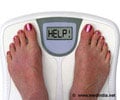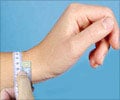Understanding your ideal weight is essential for maintaining good health and preventing diseases. This Ideal Body Weight Calculator considers the natural differences between men and women, offering accurate recommendations to help you take control of your well-being.
How to Use the Ideal Body Weight Calculator: Simply enter your gender and height into the calculator, and it will estimate your ideal body weight. This provides a clear target to support your health and fitness goals.
Men have a higher ideal body weight for a given height compared to women, and this calculator accurately reflects these variations. Remember, this calculator is a guide and should be used in conjunction with advice from healthcare professionals.
Find out your Frame size (i.e. small, medium or large frame)
Interesting Facts about Ideal Body Weight
Ideal body weight depends on various factors, including a person's body composition, muscle-to-fat ratio, age, sex, and bone density. Nevertheless, here are some top nine interesting facts about our body weight and health:
- Growth in men occurs till the age of 25, after which the weight normally remains constant.
- On an average 70kg or 150lb mass of an adult human body contains approximately 37.2 trillion cells.
- There are more bacteria that reside in normal human gastrointestinal tract than cells in the body.
- Almost 99% of the body mass of the human body is made up of six elements namely oxygen, carbon, hydrogen, nitrogen, calcium and phosphorus.
- There are 60 identifiable chemical elements present in the human body and of these only around 25 are required for life and good health.
- The elements in the human body are distributed as water, carbohydrates, fats, protein, hydroxyl-apatite (in bones) along with minerals and DNA.
- All of the trace elements such as iron, zinc, copper and selenium make up less than 10 grams of the human body.
- Water is responsible for 60 to 65% of body weight among males and 50% among females. Females have more fat which also means they have higher proportion of carbon.
- Healthy Weight is linked to longevity and means reduced risk of chronic diseases, such as heart disease, type 2 diabetes, and certain cancers.
Why BMI, Ideal Body Weight, and Obesity Matter: Understanding Health Metrics for Longevity
Understanding BMI, Ideal Body Weight, and obesity is crucial for longevity. This guide explores these key health metrics followed by their impact on long-term health, and why achieving IBW is important for a healthier, longer life.
- Ideal Weight range as BMI - BMI between 18.5 and 24.9
- Overweight - BMI between 25 and 29.9
- Class 1 Obesity - BMI of 30 but less than 35
- Class 2 Obesity - BMI of 35 but less than 40
- Class 3 or severe obesity - BMI of 40 or higher
For some population the
cut off point for overweight and obesity has been redefined by WHO and other bodies:
- BMI & Chinese population - BMI criterion has been for overweight has been defined as 24 to 27.9 kg/m2 and that for obesity as 28 kg/m2 (1✔).
- BMI for Indian & Pacific Population - BMI criterion for overweight has been defined as 23 to 24.9 kg/m2 and that for obesity as ≥25 kg/m2 (2✔)
Why Knowing Your Ideal Weight Matters?
Maintaining a weight within your ideal range is more than just about looks and aesthetics; it's about health and longevity. Being either underweight or overweight can have significant health implications. The World Health Organization estimates that by 2025 over 3 billion people will be overweight with BMI of over BMI≥25kg/m
2 and 17% of the world population will have a BMI of over 30kg/m
2 and will be in obesity category(
3✔). The growing epidemic of obesity and excessive weight has been linked to numerous lifestyle diseases, including:
- Heart Disease: Obesity increases heart disease risk by 28% compared with healthy people of normal weight (4✔).
- Stroke: Being overweight increases your risk of stroke by 22% and being obese by 64% (5✔).
- Diabetes: Obesity is believed to account for 80-85% of the risk of developing type 2 diabetes (6✔).
- Metabolic Syndrome: This encompasses a range of conditions including high blood pressure, high blood sugar, and abnormal cholesterol levels. According to International Diabetes Federation the overall prevalence of metabolic syndrome for men and women is 62.3 and 74.8% in obese and 37.7 and 25.8% in overweight groups, respectively.
- Certain Cancers: About 4-8% of all cancers are attributed to obesity and Obesity has been linked to several common cancers including breast, colorectal, esophageal, kidney, gallbladder, uterine, pancreatic, and liver cancer. (7✔).
- Chronic Obstructive Pulmonary Disease (COPD): Excess weight can exacerbate the symptoms of COPD and make it worse.
For personalized advice on healthy body weight, it's best to consult with a
healthcare provider or a registered dietitian
Recommended Readings on Body Weight
The ideal age, ideal body, nutrient and water requirements for Indian men and women have been changed based on data from multiple reports.
Calculate the ideal weight of your baby with Medindia's Infant weight calculator.
Calculate the ideal weight for your height and your body frame using Medindia's precise height and weight by body frame for adults.
Calculate the ideal lean body mass for your height.
Slide show which explains obesity causes and tips on how to lose weight. Exercising before breakfast is most effective for weight loss.
Quick fix weight loss solutions are tempting when one is desperate to shed off the extra kilos, be it for a big occasion or post a holiday.
Maintaining a food diary and keeping a track of what you eat is the best way to keep your weight under check.
Slide animation to explain the laparoscopic procedure called 'sleeve gastrectomy', where around 80% of the stomach is removed as a part of weight-loss surgery.
While you are hitting the gym, keeping a check on food intake those troublesome kilos just refuse to leave the body. There are various unthought-of reasons behind not losing weight. Check it out!
Obesity is resistant to instant remedies and its management is a long-term endeavor. Here are a few tips to control obesity in children.
Do you have a weight problem and trying to lose a few kilos? or is it pounds? find out the difference by using this unit conversion calculator.
Body adiposity index or body fat percentage calculator gives you the fat percentage in your body using your height and hip circumference. Body adiposity index calculator helps check if you are obese.
Exercise or Fitness Calculator assesses your flexibility, strength and stamina based on your performance in various fitness exercises like sit and reach, push up and aerobic exercises.
Belly fat, also called the abdominal fat and visceral fat, is not just about waist size. It is about your health. Take this quiz to find out how much you know about your belly fat. ...
Bariatric surgery is the most effective weight-loss therapy for the morbidly obese. Lap banding and gastric bypass are the most commonly used weight loss surgeries.
About 90% women experience weight gain or difficulty maintaining their usual weight after attaining menopause.
Dr. Rajan HandaDEHM,BEMS,MDEH, NDDY, MDAM, Ph.D. Honorary, DNHE, Doctorate of Natural Medicine / DNMA, Executive Therapist
26 years experience
View Profile
























very useful